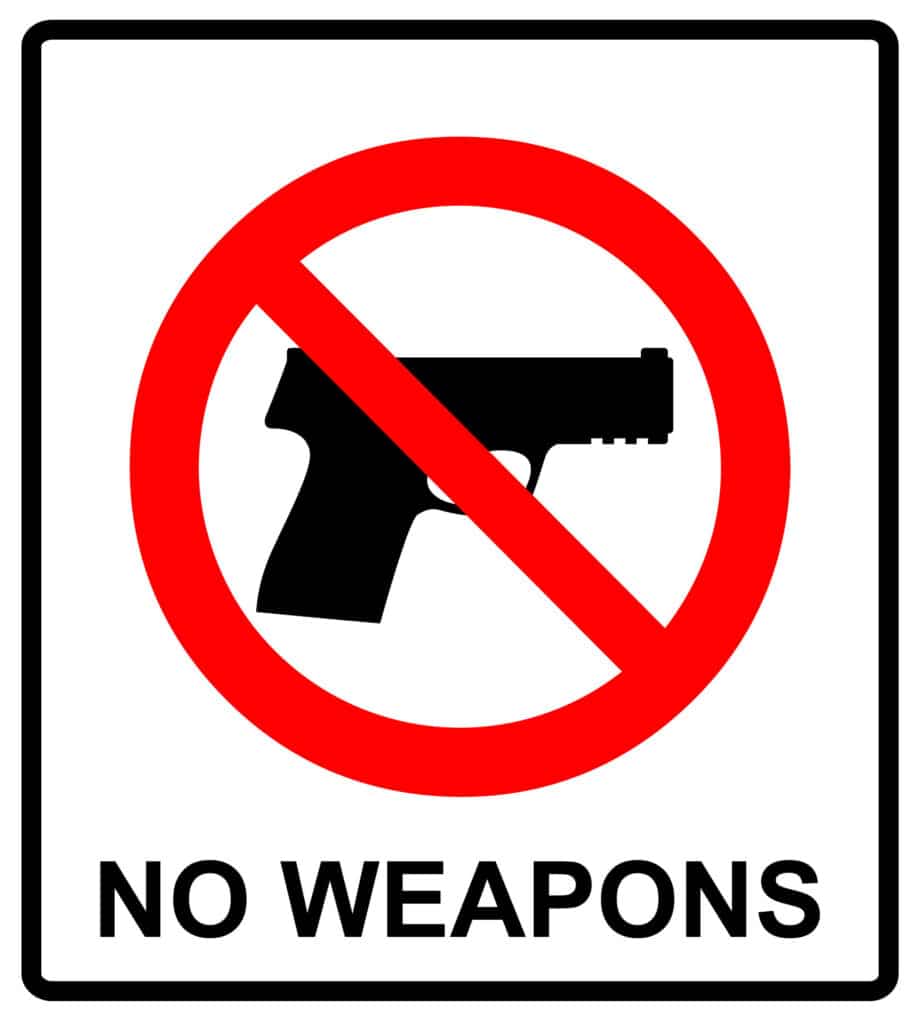Defending Against Police Informant Testimony
April 18, 2025

Denver Woman’s eBay Scheme Costs $1M+ in Penalties
Colorado’s Enhancement Policies on Violent Crime Penalties
Posted by: Jacob E. Martinez
Category: Gun Crimes | Risk Protection Orders | Weapons Crimes
In the modern era, gun control has become a very divisive issue. Local gun ordinance laws can clash with state laws, as has been the case in Colorado recently.
For example, in Boulder in 2018, the city council passed an ordinance that banned the possession and sale of high-capacity magazines and assault-style weapons within the city limits.
After passing this ordinance, the city’s citizen groups sued and now the Colorado Supreme Court is going to weigh in on whether or not Boulder can ban the weapons and ammunition.
While city officials and its citizens may disagree about what weapons are and aren’t allowed within city limits, Colorado as a whole does have a law called a red flag law.
Extreme risk protection orders are at the heart of red flag laws, making it legal to take away the firearms of someone in a household that may be a threat to themselves or others.
Here is what you need to know about extreme risk protection orders and how it fits into Colorado’s gun laws.
Extreme risk protection orders prohibit certain people from having firearms in the event the court deems they are a threat to themselves or others.
These orders are often initiated by those who may be concerned about potential gun violence from someone in their lives that has access to firearms. This is especially true when someone has experienced threats or violence from the accused in the past.
In Colorado, extreme risk protection orders can only be requested by members of the person’s household or law enforcement. Under the law, the definition of someone in the household or a family member includes:
If someone wishes to request an extreme risk protection order against you in Colorado, then they must complete a petition and affidavit for a temporary order.
That temporary order will include specific, detailed information to support a reasonable fear that you will do something dangerous and that your access to firearms is likely to lead to their injury or the injury of someone else.
They will also provide any current protection orders that may exist between you both currently and in the past.
The petition is then signed in front of a notary public or court clerk and the form is filed with the court in your county of residence. The filing process is free.
A hearing for a temporary order of protection should be scheduled the same day the petition is filed with the court or the next day. The judge can hold the hearing over the phone if they deem it is necessary for protection or if your accuser is disabled. It’s not required for you, as the accused, to appear at the temporary hearing.
If the petition is granted by the court, then a temporary order is then in place until a hearing for the final extreme risk protection order can be scheduled. This should happen within 14 days. Both yourself and your accuser will need to appear at the hearing.
At the final hearing, the evidence for the order must be clear and convincing to the judge. This will be determined through the questioning of all parties (including witnesses) involved.
If you are the subject of an extreme risk order of protection in Colorado, then you will be expected to surrender your firearms. Once the order is issued, you must surrender any firearms as well as any permits you have.
Your weapons can be sold to a licensed dealer or law enforcement can keep them in storage for the full 364 days the order is in effect.
If the order is violated and you are found in possession of a firearm while it’s in effect, then you can be charged with a Class 2 misdemeanor.
After the order is lifted, then you can recover your firearms within three days, but only after a criminal history background check is performed and it’s determined you are once again eligible to possess a firearm.
About the Author:
Denver-based criminal defense and DUI attorney Jacob E. Martinez is a knowledgeable and experienced litigator with a record of success providing innovative solutions to clients facing criminal charges of any severity. Mr. Martinez has been recognized by countless legal organizations for his exemplary defense work, including Avvo, Best DWI Attorneys, Expertise, Lawyers of Distinction, The National Trial Lawyers, and others. He was also named one of the 10 Best in Client Satisfaction in Colorado by the American Institute of Criminal Law Attorneys for 2020 and is Lead Counsel rated.
Jury Trial - Not Guilty
Jury Trial - Not Guilty
Arapahoe 1st Degree Assault/Vehicular Assault
Jury Trial - Not Guilty
Denver Domestic Violence Assault Case
Jury Trial - Not Guilty
Denver D.V. Assault
Jury Trial - Not Guilty
Denver Careless Driving Resulting in Death
Jury Trial - Not Guilty
Jefferson County Felony Menacing
Jury Trial - Not Guilty
Adams County DUI
Jury Trial - Not Guilty
Jefferson County DUI
Jury Trial - Not Guilty
Jefferson County DUI
Jury Trial - Not Guilty
Jefferson Vehicular Assault/DUI
Jury Trial - Not Guilty
Jefferson County DUI
Jury Trial - Not Guilty
Boulder County DUI case
Jury Trial - Not Guilty
Arapahoe County DUI case
Jury Trial - Not Guilty
Adams County DUI case
Jury Trial - Not Guilty
Douglas County DUI case
Jury Trial - Not Guilty
Gilpin County DUI case
Dismissed
Broomfield County Probation Revocation case
Dismissal
Arapahoe County DUI case
Deferred Judgment
Arapahoe County DUI case
Deferred Judgment
Douglas County DUI case
Deferred Judgment
Larimer County DUI case
Deferred Judgment
Arapahoe County DUI Case
Deferred Judgment
Denver Felony Burglary Case
Deferred Judgment
Arapahoe County DUI case
Dismissed
Arapahoe County Protection Order Case
Dismissed
Golden Destruction of Property case
Dismissed
Jefferson County Protection Order case
Dismissed
Jefferson County Domestic Violence case
Dismissed and Sealed
Jefferson County DUI case
Dismissed
Denver Major Traffic Offense case
Dismissed and Sealed
Broomfield County Domestic Violence case
Dismissed
Summit County DUI Revocation
Dismissed
Denver DUI Revocation
Dismissed
Denver DUI Revocation
Dismissed
Denver DUI +.2 Involving Accident and Injury case
Dismissed
Denver DUI/Habitual Traffic Offender case
DISMISSAL
Denver District Aggravated Theft
Dismissed
Greenwood Village Assault case
Dismissal
Elbert County DUI
Dismissed
Arapahoe County Domestic Violence case
Dismissal
Jefferson County DUI
Dismissal
Denver Municipal Assault
Dismissed
Boulder County Domestic Violence Assault case
Dismissed
Wheat Ridge Assault case
Dismissed
Jefferson County DUI case, with 2+ Prior Convictions
Dismissed
Arapahoe County Domestic Violence case
Dismissed
Broomfield County Domestic Violence case
Dismissed with No Charges Filed
Jefferson County Felony Theft case
Dismissed
Arapahoe County Felony Theft case
Dismissed
Boulder County Felony Theft case


